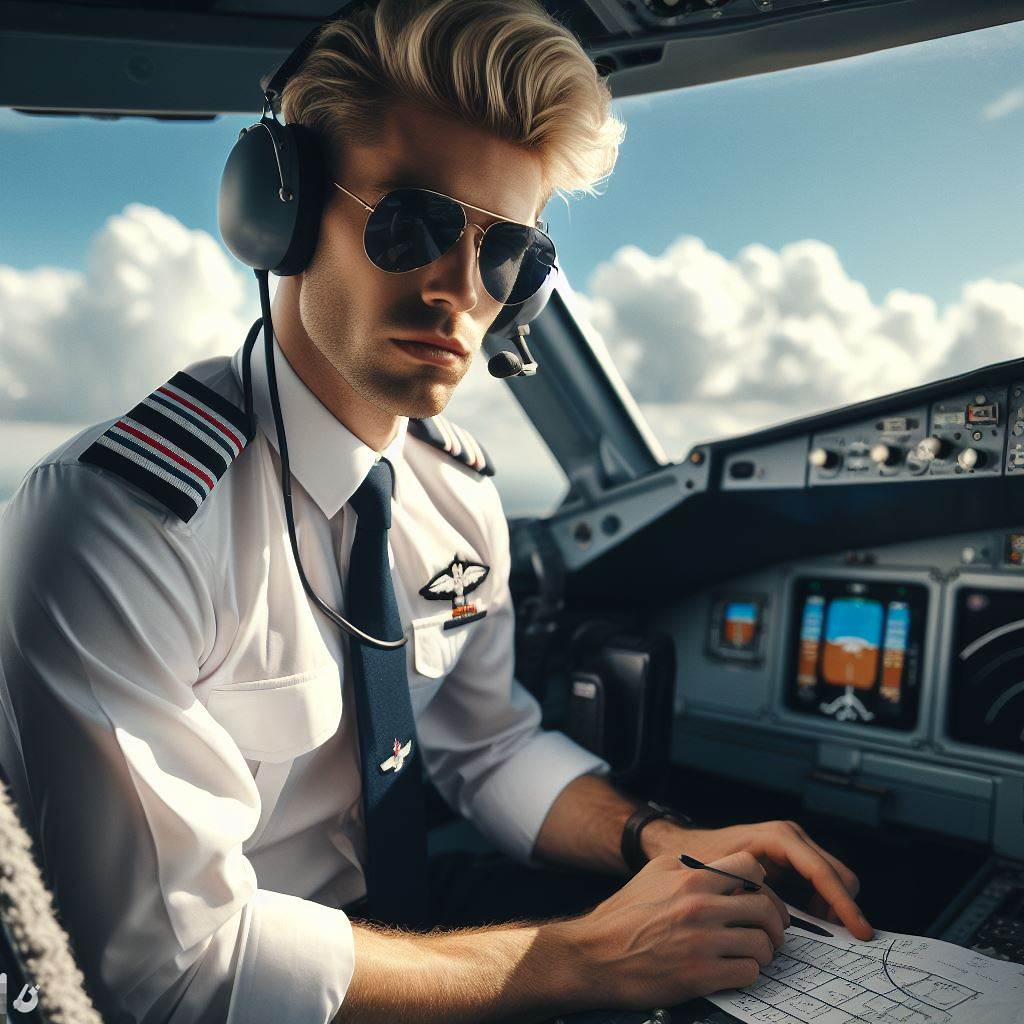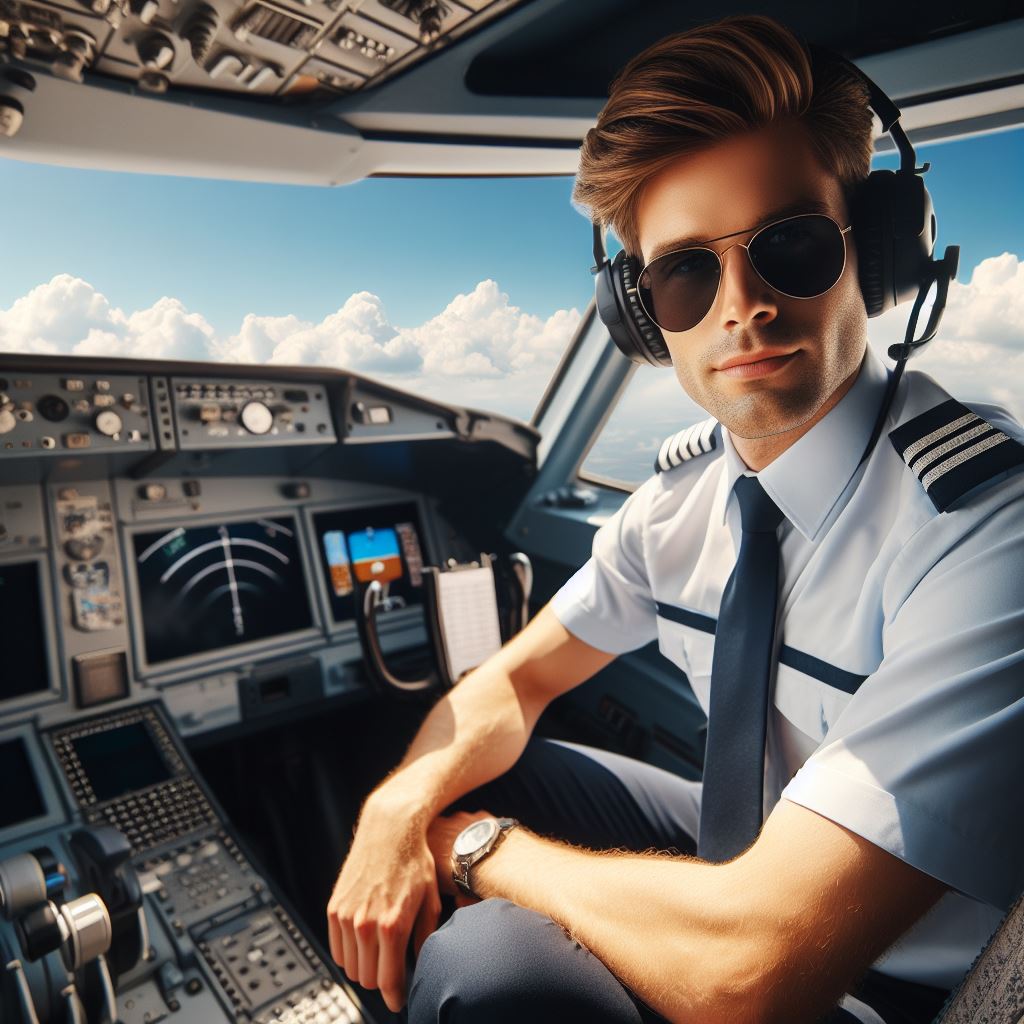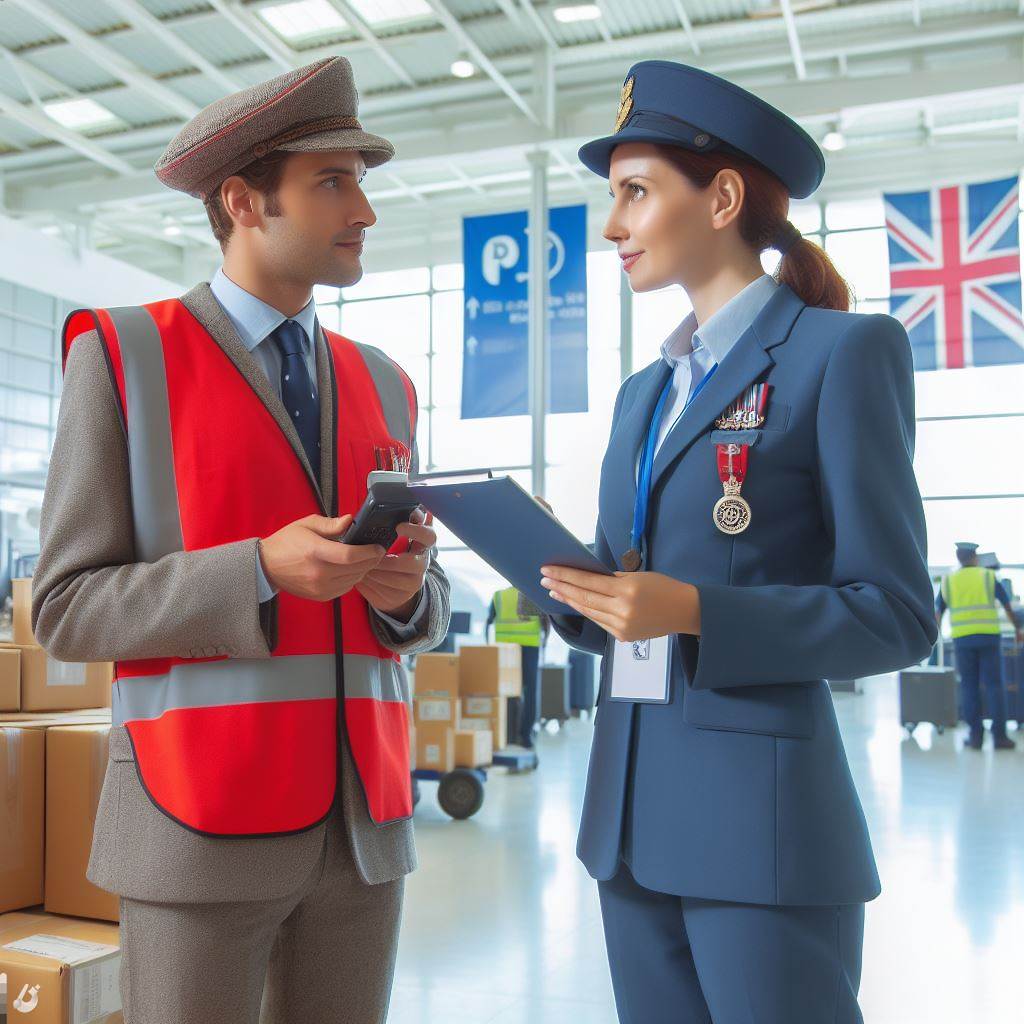Introduction
UK pilots’ health and fitness standards are essential for ensuring safe and efficient flying operations.
Maintaining good health and fitness is crucial for pilots to perform their duties effectively.
Within the dynamic realm of aviation, the cockpit is a nexus where technical expertise converges with human vitality.
Beyond mastering the controls and navigating the skies, pilots in the United Kingdom are subjected to comprehensive health and fitness evaluations.
This multifaceted assessment spans cardiovascular fitness, mental acuity, vision precision, and overall well-being.
It’s a symbiotic relationship between the pilot’s physical condition and the exigencies of flight.
This blog post will discuss the significance of health and fitness standards for UK pilots and highlight their importance in ensuring aviation safety.
This exploration peels back the layers of these standards, offering insights into how the aviation industry safeguards not only the technical proficiency of its pilots but also their enduring health—a fusion essential for ensuring the safe and efficient operation of aircraft in the UK airspace.
Join us on a journey through the rigorous criteria, illuminating the intricate tapestry woven to uphold the resilience and excellence of those who navigate our skies.
Overview of UK Pilots’ Health and Fitness Standards
The regulatory bodies responsible for setting these standards
The health and fitness standards for UK pilots are set by two main regulatory bodies: the Civil Aviation Authority (CAA) and the European Aviation Safety Agency (EASA).
These organizations work together to ensure that pilots meet certain criteria to safely operate commercial aircraft.
The CAA is a national body that oversees aviation regulations in the UK, including the health and fitness of pilots.
They are responsible for issuing and renewing medical certificates, as well as monitoring pilots’ ongoing health conditions.
EASA, on the other hand, is an agency of the European Union and is responsible for harmonizing aviation safety standards across all member countries.
Basic requirements for obtaining and maintaining a pilot’s medical certificate
To become a pilot in the UK, individuals must undergo a thorough medical assessment to obtain a pilot’s medical certificate.
Personalized UK Career Consulting
Receive tailored career guidance designed just for you. Get actionable steps and expert support to boost your career in 1-3 days. Take control of your career now.
Get StartedThis certificate is essential for maintaining flight privileges and is subject to regular follow-up assessments.
1. Initial medical assessment
During the initial medical assessment, pilots are evaluated by Aviation Medical Examiners (AME).
These medical professionals assess the pilot’s physical and mental health, including cardiovascular fitness, mental health conditions, and vision and hearing capabilities.
2. Regular follow-up assessments
To ensure ongoing fitness to fly, pilots must undergo regular follow-up assessments.
The frequency of these assessments varies depending on the pilot’s age and the class of their medical certificate.
Younger pilots may require assessments every five years, while older pilots may need more frequent assessments.
Specific health conditions that may disqualify pilots from flying
Certain health conditions can result in disqualification from flying, as they may compromise the safety of the pilot, passengers, and aircraft.
Pilots are required to meet specific health criteria in various areas.
1. Cardiovascular diseases
Pilots with certain cardiovascular diseases, such as severe heart conditions or uncontrolled hypertension, may be disqualified from flying.
These conditions can increase the risk of in-flight medical emergencies or incapacitation.
2. Mental health conditions
Mental health conditions, including depression and anxiety disorders, can affect a pilot’s ability to perform their duties effectively.
Pilots with these conditions must undergo a thorough assessment to determine their suitability for flying.
3. Vision and hearing requirements
Good vision and hearing are crucial for pilots to ensure they can navigate and communicate effectively.
Pilots must meet specific visual acuity and color perception requirements.
Your Dream Job Starts with a Perfect CV
Get a tailored CV and cover letter that captures your unique strengths and stands out in your industry. Let us help you make an unforgettable first impression.
Get StartedThey must also demonstrate adequate hearing capabilities to communicate with air traffic control and other crew members.
In short, the UK has stringent health and fitness standards for pilots to ensure the safety of air travel.
The CAA and EASA work together to establish these standards, which include initial medical assessments, regular follow-up assessments, and specific criteria for cardiovascular, mental health, vision, and hearing conditions.
These standards help to ensure that pilots are fit to operate aircraft and maintain the highest levels of safety in the aviation industry.
Read: Women in Aviation: UK Pilot Perspectives
Physical Fitness Standards for UK Pilots
Description of physical requirements to operate an aircraft safely
Operating an aircraft safely requires a certain level of physical fitness to handle the challenges of flying.
Pilots must possess good cardiovascular endurance, muscular strength and endurance, and flexibility.
Adequate physical fitness allows pilots to handle emergency situations, long flights, and intense physical exertion.
Physical fitness assessment procedures
To ensure pilots meet the necessary physical fitness standards, various assessment procedures are in place.
Aerobic fitness testing
Aerobic fitness is crucial for pilots as flying can be physically demanding.
Pilots are usually subjected to a VO2 max test to measure their cardiovascular endurance.
This test determines their ability to sustain prolonged physical activity in the cockpit.
Muscular strength and endurance tests
Pilots need to have sufficient muscular strength and endurance to perform tasks such as operating controls and handling emergencies.
Tests such as push-ups, sit-ups, and lifting weights are conducted to assess a pilot’s muscular fitness.
Optimize Your LinkedIn for Success
Boost your LinkedIn profile with a professional bio, keyword-rich headline, and strategic recommendations that attract recruiters. Stand out from the crowd and get noticed.
Optimize NowFlexibility assessments
Flexibility is important for pilots to move comfortably within the cockpit and perform various tasks.
Assessments include measuring the range of motion in joints and conducting flexibility exercises.
Having pilots meet these physical fitness standards not only ensures their safety but also the safety of passengers and crew.
Physical fitness plays a vital role in the pilot’s ability to handle stress and make critical decisions during flights.
It is important to note that these standards are consistent with regulations set by the Civil Aviation Authority (CAA).
The CAA ensures that pilots maintain a high level of physical fitness throughout their careers.
Pilots are required to undergo regular medical examinations to assess their overall health and fitness.
These examinations include checks on vision, hearing, blood pressure, and other physiological parameters.
In addition to meeting these physical fitness requirements, pilots are also expected to maintain a healthy lifestyle.
This includes eating a balanced diet, getting adequate rest, and avoiding excessive alcohol consumption.
Pilots have access to fitness facilities and resources to help them maintain their physical fitness.
They are encouraged to engage in regular exercise routines that focus on cardiovascular fitness, strength training, and flexibility.
Overall, the physical fitness standards for UK pilots are essential for ensuring their ability to operate aircraft safely.
By maintaining a high level of physical fitness, pilots can handle the demanding nature of their profession confidently.
Read: The Future of Piloting in the UK
Mental Wellness Requirements for UK Pilots
Importance of psychological well-being for pilots’ performance and safety
Being mentally fit is crucial for pilots as it directly affects their performance and the safety of their passengers.
Mental health assessments and screenings
To ensure mental wellness among pilots, there are specific assessments and screenings that they must undergo.
1. Psychological evaluations during medical examinations
During routine medical examinations, pilots are required to undergo psychological evaluations to assess their mental state.
These evaluations aim to identify any underlying psychological issues that may affect their ability to perform their duties in a safe and efficient manner.
2. Reporting and addressing mental health concerns
Pilots are encouraged to report any mental health concerns they may have to the relevant authorities.
This includes feelings of anxiety, stress, or depression, as well as any personal issues that may impact their mental well-being.
Support systems and resources available for pilots’ mental well-being
The aviation industry recognizes the importance of providing support systems and resources to help pilots maintain their mental well-being.
These resources include confidential counseling services, peer support groups, and access to mental health professionals.
Pilots are encouraged to seek help when needed and are reassured that doing so will not negatively impact their career.
1. Confidential counseling services
Confidential counseling services are offered to pilots to provide them with a safe space to discuss any mental health concerns they may have.
These services ensure that pilots have access to trained professionals who can offer guidance and support.
2. Peer support groups
Peer support groups allow pilots to connect with others who may have experienced similar mental health challenges.
These groups provide a supportive community where pilots can share their experiences and learn from each other’s coping strategies.
3. Access to mental health professionals
The aviation industry ensures that pilots have access to mental health professionals who specialize in treating individuals in high-stress environments.
These professionals understand the unique challenges faced by pilots and can provide appropriate interventions.
In fact, mental wellness is of utmost importance for UK pilots. Regular psychological evaluations, reporting concerns, and access to support systems are vital for maintaining their mental well-being.
By prioritizing pilots’ mental health, the aviation industry ensures the safety and performance of all individuals onboard.
Read: UK Pilot Work-Life Balance: What to Expect

Vision and Hearing Standards for UK Pilots
Maintaining optimal vision and hearing standards is crucial for UK pilots.
These sensory abilities play a significant role in ensuring the safe and efficient operation of aircraft.
In this section, we will explore the specific requirements and assessments related to vision and hearing for pilots in the UK.
Essential vision requirements for pilots
When it comes to vision, pilots must meet certain essential requirements.
One of the key assessments pilots undergo is the evaluation of visual acuity and color vision.
These tests are necessary to determine if pilots have the necessary vision capabilities to perform their duties effectively.
Visual acuity refers to the sharpness and clarity of a person’s vision.
Pilots need to have excellent visual acuity to read instruments, charts, and other important materials in the cockpit.
Similarly, color vision tests are conducted because pilots must be able to distinguish different colors accurately, especially in situations where color-coded instruments or warning signs are used.
In case pilots have impaired vision, corrective measures such as wearing glasses or contact lenses are permitted.
These corrective devices help pilots achieve the required visual acuity and ensure that their vision does not hinder their ability to perform their duties safely and effectively.
Hearing standards and assessments
Moving on to hearing, UK pilots must undergo an audiometric evaluation.
This evaluation assesses the pilot’s ability to perceive sounds of different frequencies and intensities.
It helps determine whether pilots have any hearing loss or impairment that could affect their communication with air traffic controllers, fellow crew members, or the general awareness of their surroundings.
If pilots are identified with hearing loss or impairment, appropriate management strategies must be implemented.
These strategies may include the use of hearing aids or other assistive devices that enhance the pilot’s ability to hear and understand crucial auditory information.
Ensuring proper management of hearing loss or impairment is vital to maintain effective communication and situational awareness, both of which are essential for safe flying.
By adhering to the vision and hearing standards set forth for UK pilots, aviation regulatory authorities can ensure that only individuals with optimal sensory abilities are entrusted with operating aircraft.
These requirements help guarantee the safety, efficiency, and effectiveness of the aviation industry, ultimately benefiting not only the pilots themselves but also passengers and ground personnel.
In essence, UK pilots must meet specific vision and hearing standards to ensure their ability to perform their duties safely and effectively.
Visual acuity and color vision tests, as well as audiometric evaluations, are conducted to assess these sensory abilities.
Corrective measures and appropriate management strategies are employed to address any vision or hearing impairments.
By upholding these standards, the aviation industry maintains a high level of safety and reliability.
Read: Navigating the UK’s Airspace: A Pilot View
Maintaining Health and Fitness as a Pilot
Importance of regular exercise and a balanced diet
- Pilots need to prioritize regular exercise to maintain overall fitness.
- Engaging in physical activities helps improve cardiovascular health and strengthens muscles.
- A balanced diet is crucial for pilots to ensure they receive proper nutrition.
- Consuming fresh fruits, vegetables, lean proteins, and whole grains provides essential vitamins and minerals.
Strategies for managing stress and maintaining mental well-being
- Pilots face high-pressure situations, making it vital to develop effective stress management techniques.
- Engaging in activities like meditation, deep breathing exercises, and yoga can help alleviate stress.
- Maintaining good mental well-being involves seeking support from friends, family, or professional help if needed.
- Taking breaks from work to relax and participate in hobbies is also important for mental rejuvenation.
Tips for maintaining good visual and hearing health
- Pilots rely heavily on their vision, so regular eye examinations are essential for detecting and correcting any vision problems.
- Wearing proper eyewear, like sunglasses with UV protection, can help protect eyes from harmful sun exposure.
- Pilots must also protect their hearing by wearing appropriate ear protection in noisy environments.
- Regular hearing tests can identify any hearing loss early and allow for necessary interventions.
Encouraging a healthy work-life balance
- Pilots should prioritize maintaining a healthy work-life balance to avoid burnout and promote overall well-being.
- Allocating time for hobbies, spending quality time with loved ones, and pursuing relaxation activities is crucial.
- Setting boundaries and maintaining a structured schedule helps ensure personal time is preserved.
- Seeking support from colleagues and employers regarding workload management can reduce stress and improve work-life balance.
Conclusion
In this blog post some of the of key points discussed are:
- UK pilots must meet specific health and fitness standards to ensure safety.
- These standards include medical examinations, physical fitness tests, and psychological evaluations.
- Pilots with certain medical conditions may be restricted from flying or require additional medical clearance.
The standards are crucial for maintaining the safety of both pilots and passengers.
They ensure that pilots are physically and mentally capable of performing their duties effectively.
Adherence to these standards minimizes potential risks and reduces the likelihood of accidents.
The health and fitness standards for UK pilots are essential for maintaining a high level of aviation safety.
Regular assessments and evaluations help identify any potential health issues or conditions that could affect pilots’ performance.
The implementation of these standards demonstrates the commitment to ensuring the well-being of pilots and the public.
The health and fitness standards for UK pilots play a critical role in keeping aviation safe.
Continuous monitoring and assessment of pilots’ health mitigate potential risks, ensuring passenger safety and overall well-being.
It is imperative that pilots maintain their health and fitness to carry out their responsibilities effectively.
Striving for excellence in this area is necessary for the continued success and reputation of the UK aviation industry.




